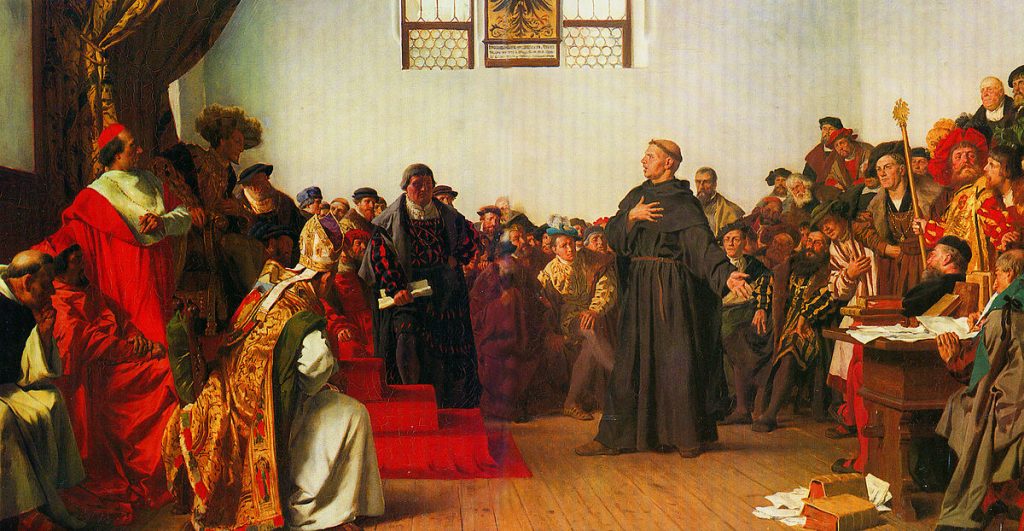We believe and accept the Scriptures of the Old and New Testament as the written Word of God and the only rule and norm of faith and of practice:
We believe, teach, and confess that the only rule and norm according to which all teachings, together with all teachers, should be evaluated and judged (2 Timothy 3:15-17) are the prophetic and apostolic Scriptures of the Old and New Testament alone. For it is written in Psalm 119:105, “Your word is a lamp to my feet and a light to my path.” St. Paul has written, “even if we or an angel from heaven should preach to you a gospel contrary to the one we preached to you, let him be accursed” (Galatians 1:8).
… all the Symbolic Books of the Evangelical Lutheran Church as a true and unadulterated statement and exposition of the Word of God:
We pledge ourselves to the symbols (i.e., brief, concise confessions), that were regarded as the unanimous, universal Christian faith and confession of the orthodox and true Church. They are the Apostles’ Creed, the Nicene Creed, and the Athanasian Creed. In this way we reject all heresies and teachings that have been introduced into God’s church against them.
However, schisms in matter of faith have happened over centuries and is happening now. Therefore, we regard as the unanimous consensus and declaration of our Christian faith and confession the first, unaltered Augsburg Confession (1530). We hold to this confession along with its Apology and the Articles composed at Smalcald in the year 1537.
We also confess Dr. Luther’s Small and Large Catechisms. They are “the layman’s Bible” because everything necessary for a Christian to know for salvation is included in them, which is handled more extensively in the Holy Scriptures.
All our teachings are to be conformed to the above confessions. What is contrary to these confessions is to be rejected and condemned, as opposed to the unanimous declaration of our faith.

Martin Luther standing before the Holy Roman Emperor, Charles V, at the Diet of Worms, 1521
In this way the distinction between the Holy Scriptures of the Old and of the New Testament and all other writings is preserved. The Holy Scriptures alone remain the judge, rule, and norm, According to them – as the only touchstone – all teachings shall and must be discerned and judged to see whether they are good or evil [1 Thessalonians 5:21-22], right or wrong.
Together, with our fathers, we accept the Formula of Concord, Epitome (1577), and the Solid Declaration (1577). The Formula of Concord is not a new Confession, but is in accord with the Holy Scriptures, the Creeds, the Augsburg Confession, and both the Catechisms of that excellent man, Dr. Luther.
It is with them that we, at First Lutheran Church, say, “we are determined not to depart even a finger’s breath either from the subjects themselves, or from the phrases that are found in them. But, the Spirit of the Lord aiding us, we intend to persevere constantly, with the greatest harmony, in this godly agreement. And we intend to examine all controversies according to this true norm and declaration of the pure doctrine.” (Preface, [Conclusion, 23], Book of Concord).
See more on our confessions at the Lutheran Church–Canada Website: History and Beliefs
THE LUTHERAN CONFESSIONS – THE BOOK OF CONCORD
2005 marks the 425th anniversary of The Book of Concord – the fundamental confessions of the Lutheran Church. These overviews of each of the book’s component parts are written by seminary professors and theologians from member churches in the International Lutheran Council. These articles are published in ‘The Canadian Lutheran’ under the title Lutheran 101.

Martin Chemnitz, one of the authors of the Book of Concord
• The Book of Concord – Overview/Introduction
• The Apostles’ Creed
• The Nicene Creed
• The Athanasian Creed
• The Augsburg Confession of 1530
• Apology of the Augsburg Confession 1531
• The Smalcald Articles 1537
• Treatise on the Power and Primacy of the Pope
• The Small Catechism
• The Large Catechism
• The Formula of Concord
• The Publication of the Book of Concord
